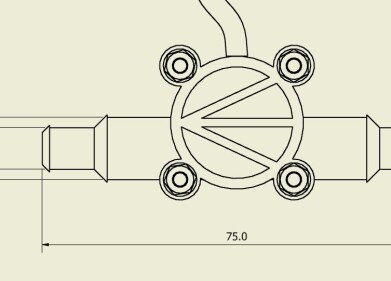Laboratory products
WHO Releases Dementia Risk Reduction Guidelines
Jun 04 2019
Dementia is one of the world's most widespread disorders, with the World Health Organisation (WHO) estimating it affects 50 million people worldwide. By 2050, experts estimate the number could hit more than 150 million, which would categorise it as a public health crisis.
To help manage the looming public health crisis, WHO has released a set of guidelines designed to help people minimise the risk of developing dementia, or at least delay the onset of symptoms caused by disorders that affect the brain.
"In the next 30 years, the number of people with dementia is expected to triple," warns Dr Tedros Adhanom Ghebreyesus, WHO Director-General.
New guide highlights importance of healthy lifestyle
Underpinned by 10 years of research, the guide explores 12 potential factors associated with the prevention of dementia. Age may be the most common risk factor associated with the disorder, however the team stress that lifestyle choices, including a healthy diet, regular exercise and avoiding habits such as smoking and heavy drinking, can play an important role. They also highlight the importance of managing medical conditions such as obesity, depression, diabetes and hypertension, which have also been linked to dementia.
"We need to do everything we can to reduce our risk of dementia. The scientific evidence gathered for these guidelines confirm what we have suspected for some time, that what is good for our heart, is also good for our brain."
Mediterranean diet wins points for cognitive-boosting credentials
To minimise the risk of developing dementia WHO recommends adopting the Mediterranean diet, which is known for its holistic health benefits. While the study authors admit there's only moderate evidence linking the Mediterranean diet to healthy cognitive function, they remain "confident that the desirable effects of the intervention outweigh any undesirable effects".
Bart De Strooper, Director of the UK Dementia Research Institute agrees, saying "Absence of evidence is not evidence of absence, and hypertension, obesity, diabetes, social isolation, and depression are all strongly correlated with poor health and decreased life expectancy, although the effects on the prevention of dementia needs further clarification."
As well as offering advice on how to proactively prevent, WHO outlined a handful of approaches to avoid. These included the use of supplements such as Vitamins B, Vitamin E and polyunsaturated fatty acid.
From dementia research to drug development, cutting-edge technology plays an important role in fast-tracking advances in the life sciences sphere. For a closer look at the latest PULVERISETTE 14 classic line and the PULVERISETTE 14 premium line models being used to prepare samples don't miss 'The importance of fine grinding for analysis within the life science industry'
Digital Edition
Lab Asia 31.6 Dec 2024
December 2024
Chromatography Articles - Sustainable chromatography: Embracing software for greener methods Mass Spectrometry & Spectroscopy Articles - Solving industry challenges for phosphorus containi...
View all digital editions
Events
Jan 22 2025 Tokyo, Japan
Jan 22 2025 Birmingham, UK
Jan 25 2025 San Diego, CA, USA
Jan 27 2025 Dubai, UAE
Jan 29 2025 Tokyo, Japan



















